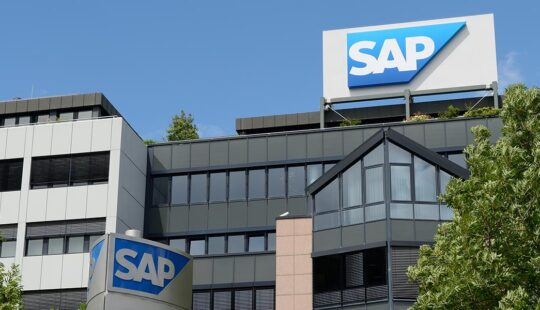Besides the impact on human lives, the COVID-19 pandemic is one of the worst economic crises of our times.
Nearly 9 in every 10 countries tracked by the International Monetary Fund (IMF) contracted in 2020, making COVID-19 the biggest economic shock since the Great Depression of 1929. India was no exception as its economy too contracted for the first time in four decades. Government enforced lockdowns and self-isolation measures resulted in a near freeze of supply chains and most businesses found themselves amidst a very real existential crisis.
The percentage of disrupted companies (operating in non-essential sectors) in India – those impacted by government restrictions or changes in the workplace practices – stood at 99% in April 2020, according to data from the Dun & Bradstreet COVID-19 Commerce Disruption Tracker. This figure remained above 80% until late August 2020.
A closer look at the business performance data reveals that the pandemic has had a disproportionate impact on the Micro, Small and Medium Enterprises (MSMEs). Dun & Bradstreet’s preliminary analysis of around 3,000 companies shows that median net sales of MSMEs fell by 47% (y-o-y) during Q1 FY21 as against a 43% contraction for large companies. While the large companies have reported an 8% median growth in net sales during Q3 FY21, MSMEs have reported only a 2% growth.
Recognising this, the government and the RBI have been undertaking a host of measures. In the Union Budget, the government proposed more than double the allocation for the MSME sector to Rs 157 bn in FY22 from Rs 56.6 bn in FY21. The allocation of Rs 100 bn (64% of total allocation to MSMEs) for Guarantee Emergency Credit Line (GECL) facility will help MSMEs meet their operational liabilities and restart their businesses in the post pandemic world. The increased allocation for Prime Minister Employment Generation Programme (13% of total allocation to MSMEs) will help in generating new self-employment ventures. Enhanced infrastructure spending to the tune over more than Rs 5.5 tn will also benefit the MSME sector through a multiplier effect.
Further, the budget has taken measures in two core areas – access to finance and ease of doing business – to support the MSME sector. Proposal to strengthen the National Company Law Tribunal (NCLT) framework, implementation of e-Courts system, and introduction of alternate methods of debt resolution and special framework for MSMEs, coupled with measures to strengthen the balance sheets of financial institutions, are expected to ease the credit constraints of MSMEs. The government’s agenda of improving the ease of doing business is clearly visible through the various measures announced such as the revision in definition of small companies, increase in the audit threshold limit, decriminalization of the LLP Act, incentivization of One Person Companies (OPCs) etc.,
However, much more needs to be done to make MSMEs truly competitive in the post COVID-19 era. The government and private sector have a collective responsibility of activating three growth levers for MSMEs – access to finance, digital transformation, and access to markets.
Access to finance
Despite the measures taken by the government to ease the credit constraints of MSMEs, the outstanding value of MSME loans from commercial banks as a percentage of GDP stands at 6.4% in India against 10.9% for Rapid Reformers (including Croatia, Czech Republic, Estonia, Hungary, Latvia, Lithuania, Poland, Slovakia, and Slovenia), according to the 2019 data from the IMF. Accounting for over 80% of the total debt demand, informal sources of finance remain the dominant channel of credit for MSMEs, according to data from the International Finance Corporation.
The current level of supply chain financing stand at less than 1% in India. Improving this penetration can help MSMEs borrow funds at ease as well as at an interest rate that is effectively the same as for a large company. Besides, providing equity funding to MSMEs through government Venture Capital funds and making a robust Intellectual property (IP) finance ecosystem for innovative MSMEs should be considered.
Digital transformation
The pandemic is expected to have a lasting impact on companies in terms of the way they conduct their business. While COVID-19 has accelerated digital transformation of businesses by several years, Indian MSMEs haven’t yet leveraged digital technology to a full extent. The percentage of e-commerce sales to total retail sales stands at 2% in India, compared to around 14% globally. With the growing need for digital transformation of the businesses, achieving digital proficiency has also become vital. Digital literacy of MSMEs needs to be enhanced so that they can adopt various digital solutions for their businesses. In addition to improving operational efficiencies, digitally connected MSMEs will also be able to access wider markets i.e. secure more customers and generate more revenue than those who are not connected or choose to remain offline.
Access to markets
Business information portals can play a huge role in expanding market access for firms by mitigating the problems of information asymmetry and reducing the sunk cost of entering new markets. In a study by researchers at the Inter-American Development Bank, the authors find that the probability of a firm exporting to new markets increases by 0.07% with each additional day of time spent on a business information portal.
Parallelly, Dun & Bradstreet’s survey conducted in Oct-Nov 2020 reveals that over 80% of Indian MSMEs that did not use any marketing or sale intelligence tools felt access to global markets was not easy. Hence, the government and export promotion agencies need to incentivise MSMEs to use business information portals to improve their access to markets.
Learn more about how governments can drive digitization for MSMEs by reviewing Government of Telangana and SAP India’s recent collaboration.
Register for the launch of RISE with SAP and discover the business transformation-as-a-service that can be tailored in a way that works best for your business.
Arun Singh is chief global economist, Dun & Bradstreet.



